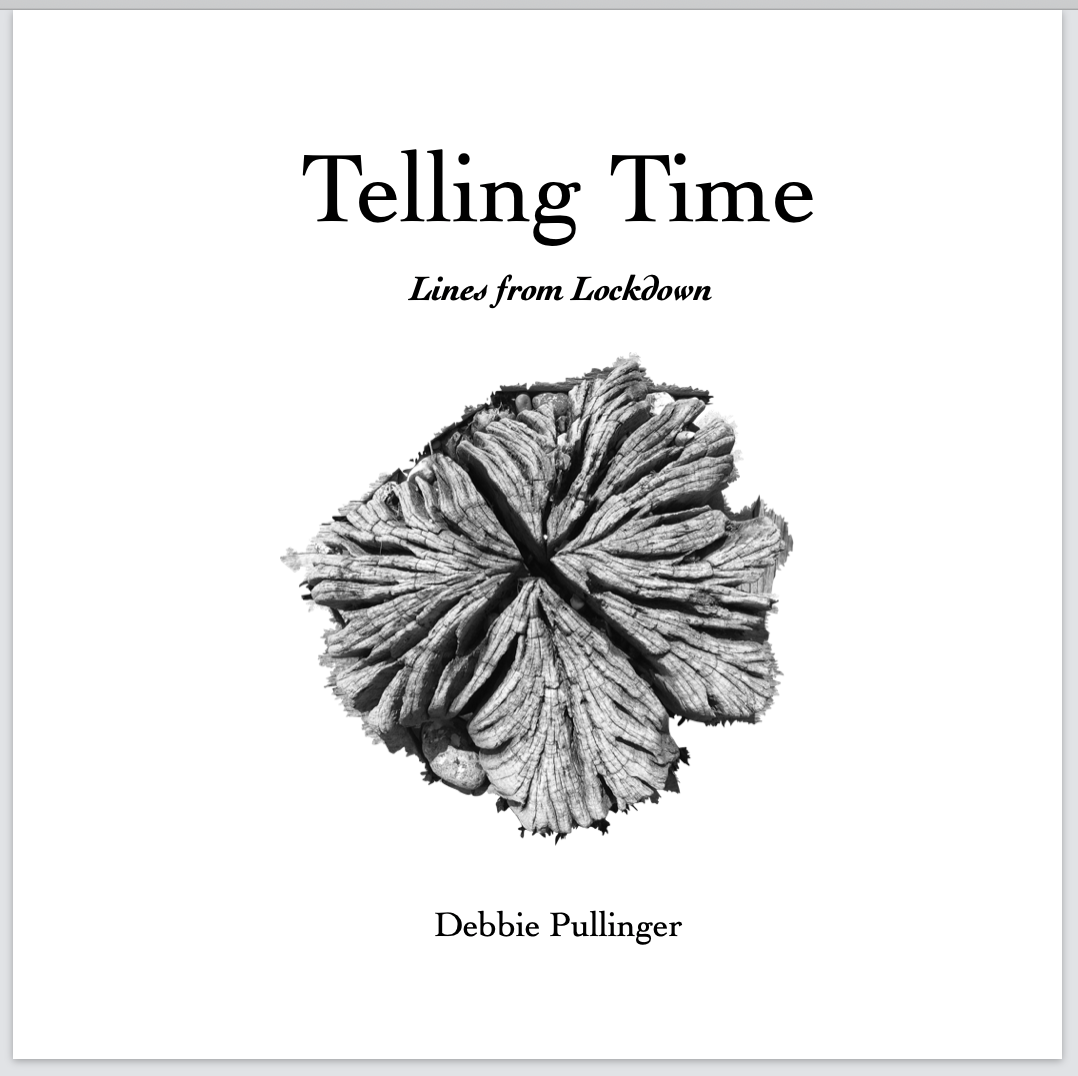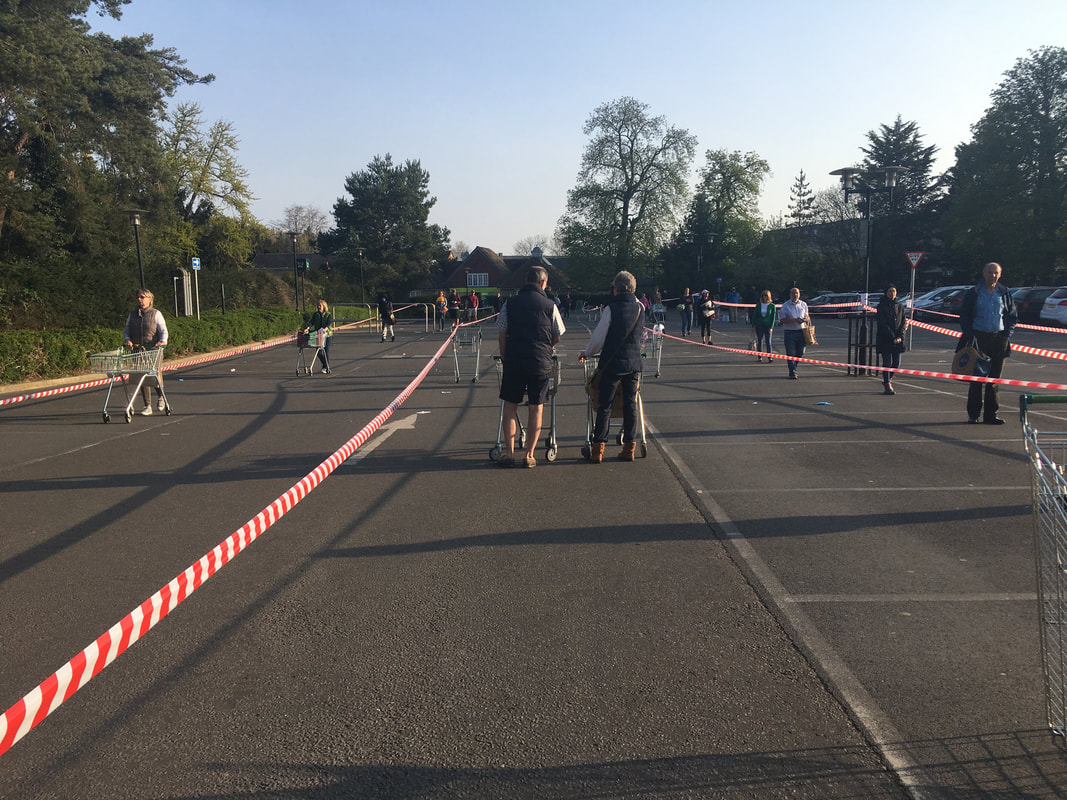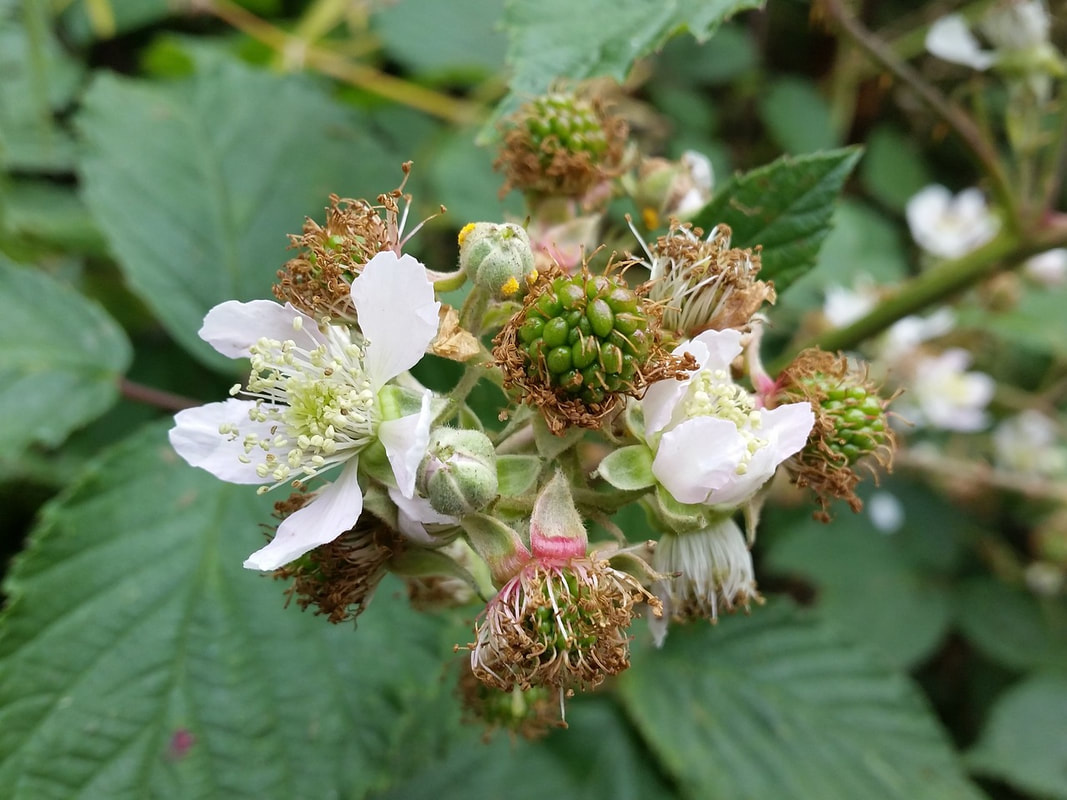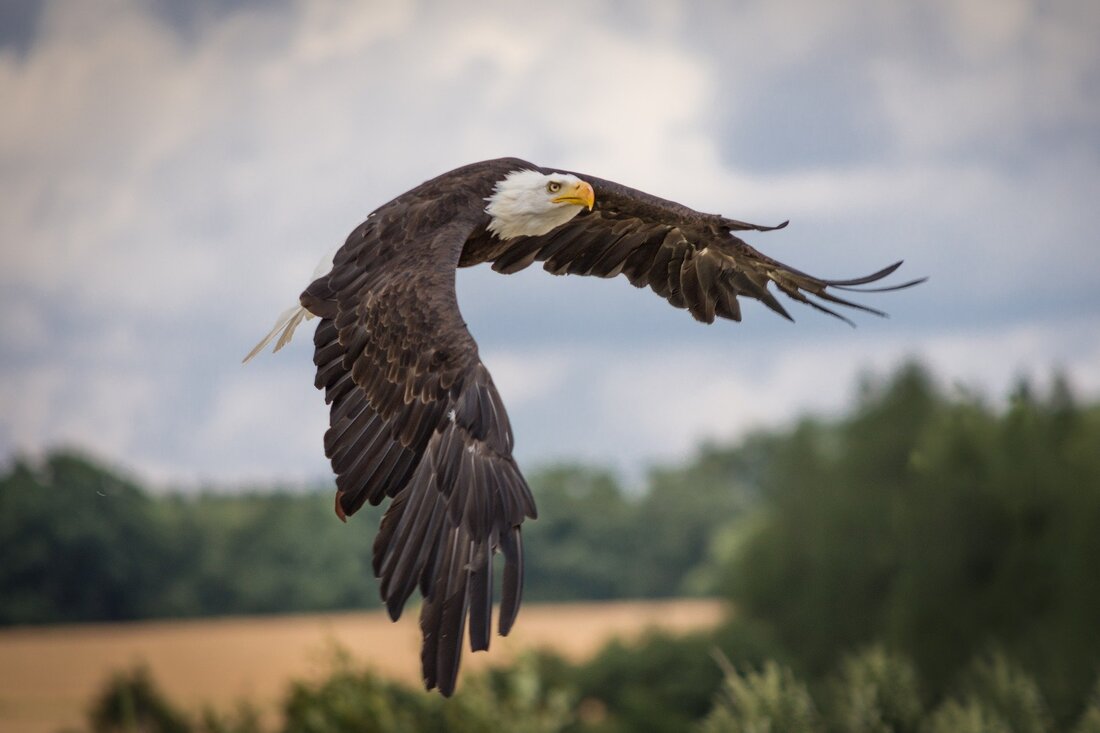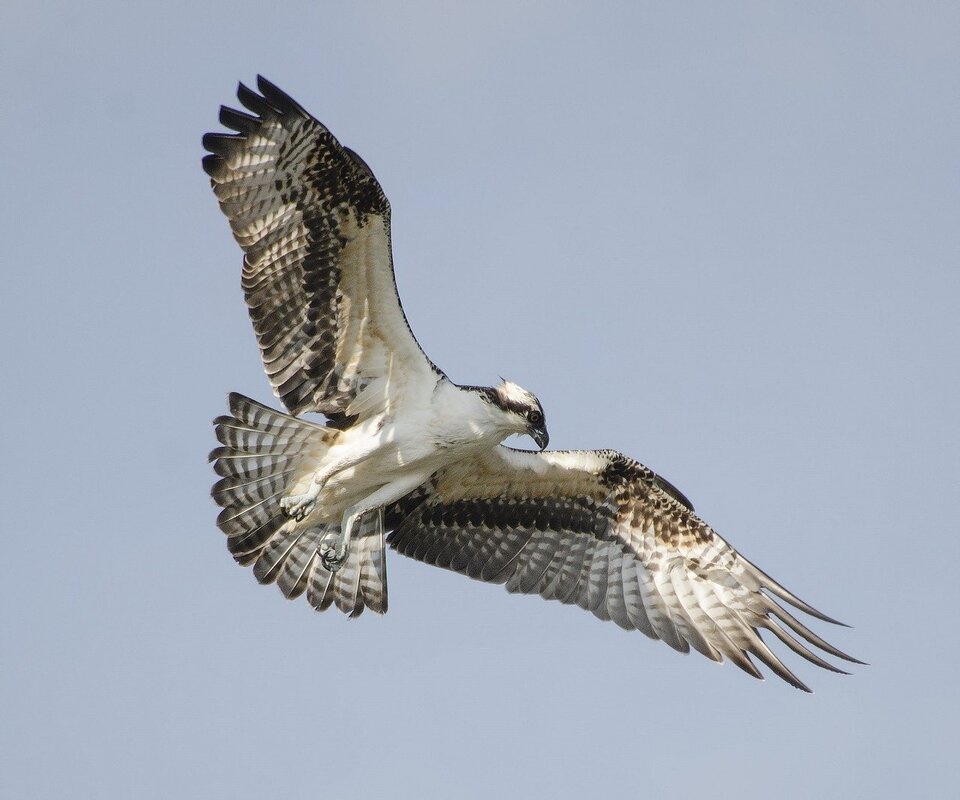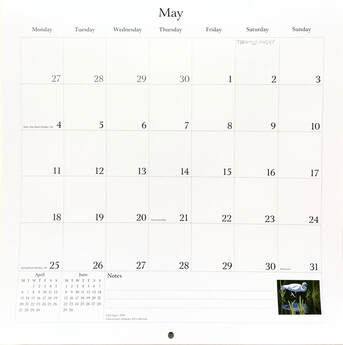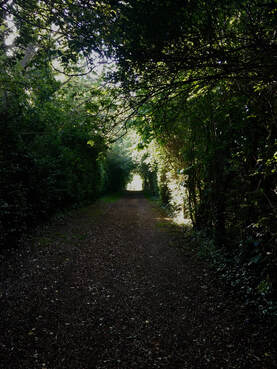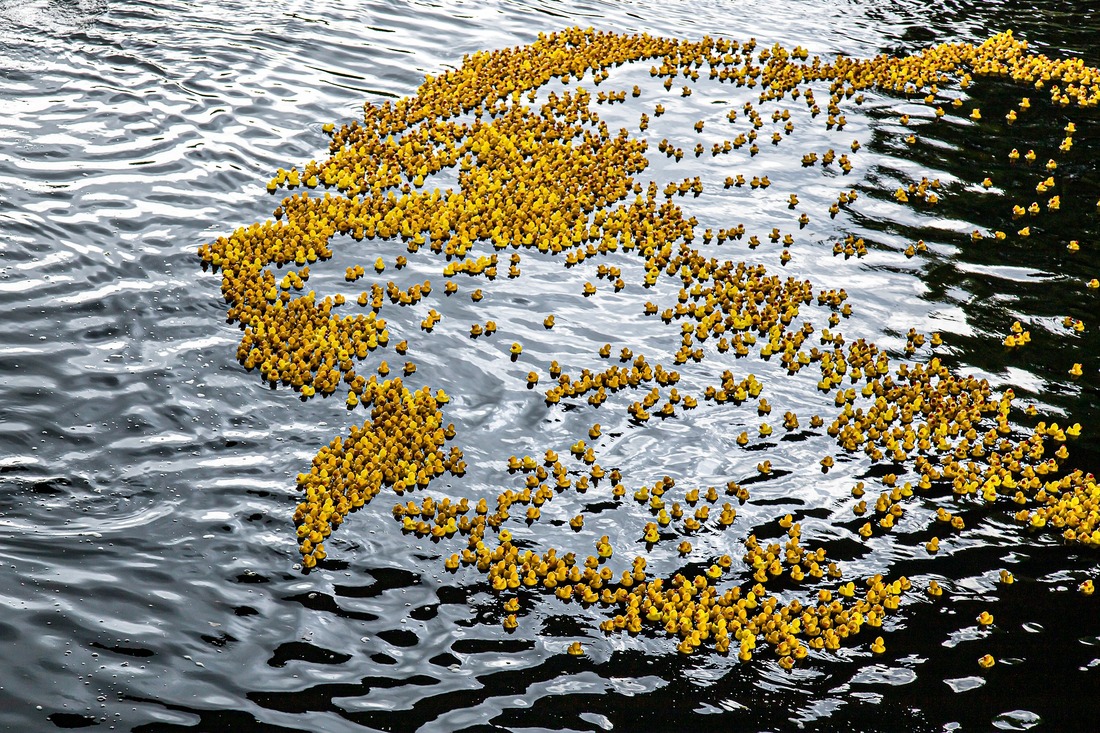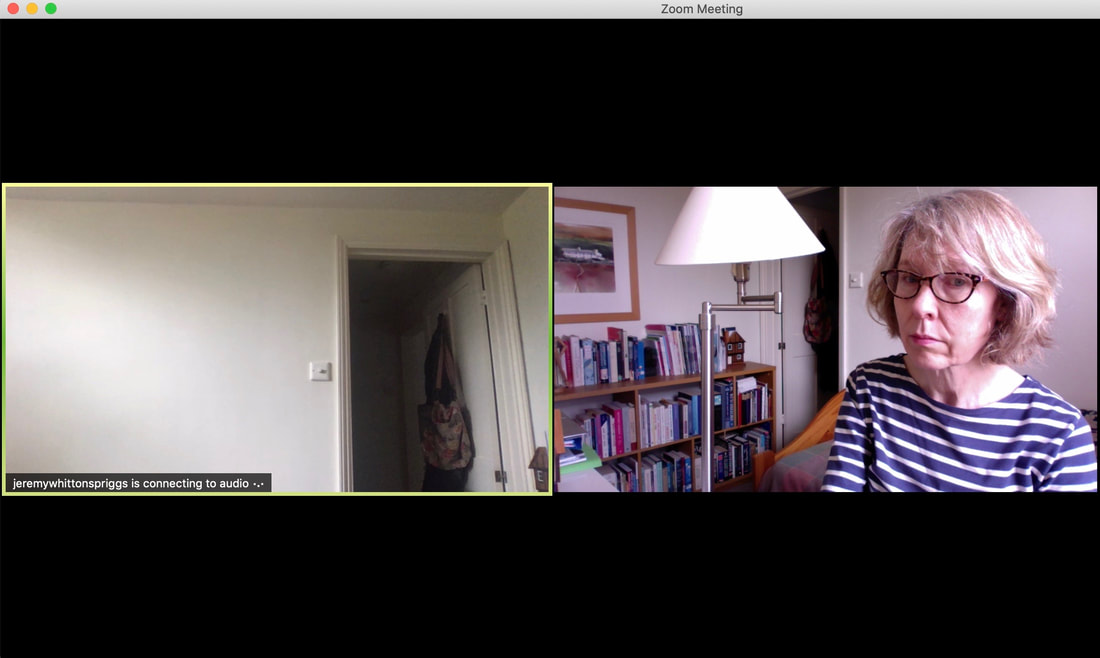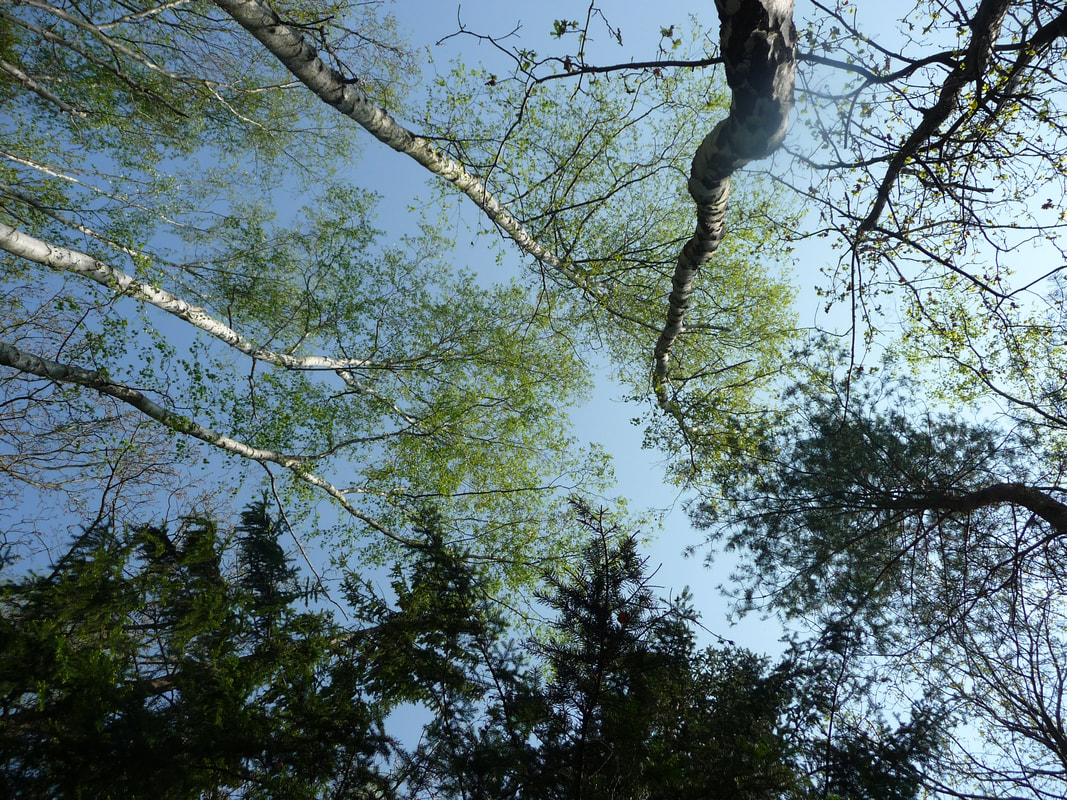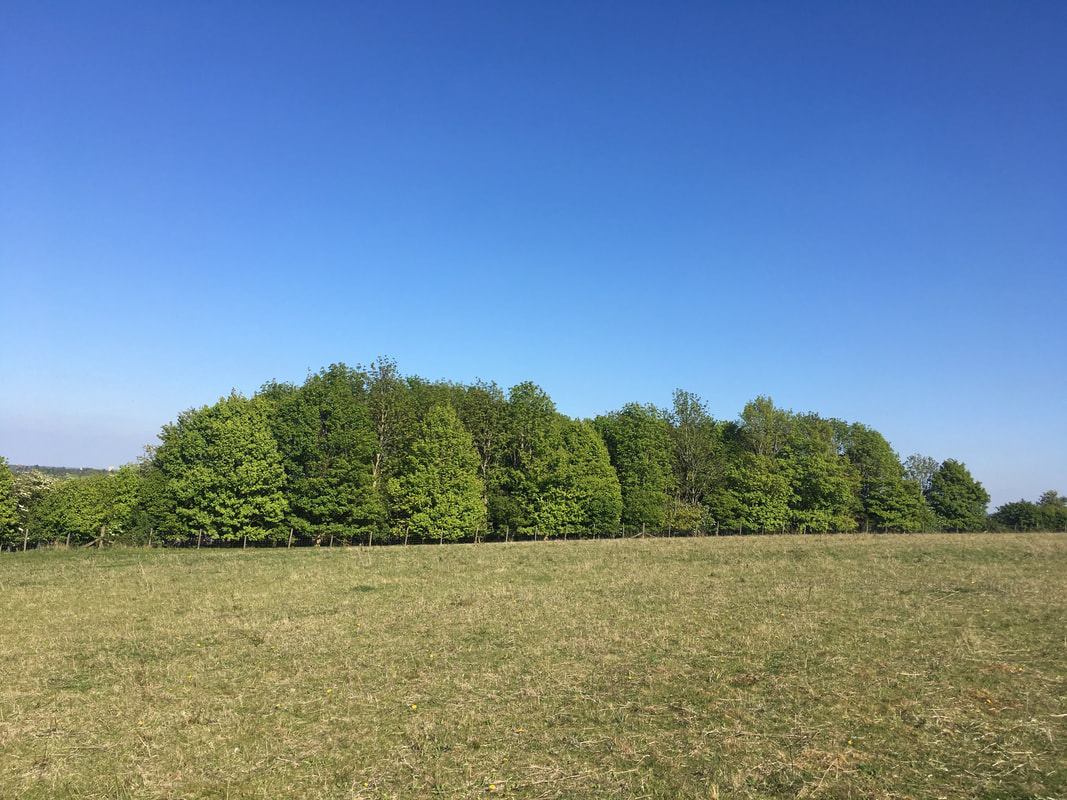|
When I last wrote, lockdown was beginning to ease and we were cautiously feeling our way towards a slightly more liberated existence. I’d like to say that this was the point at which this series of Reflections came to a clear and natural conclusion. The reality is that other things began to crowd in and the poetry writing was crowded out. But in a way that’s probably a reflection of how it’s been. There’s been no celebration in the street, and we’re still sliding from one state of uncertainty to another.
I have plans for another set of reflections on a rather different tack in the coming months, but in the meantime I decided to round off this one by collecting all the poems, and some of the accompanying photos, into a little book. In preparing its pages, I became aware how much of a presence trees had become – in the book as in my life. So all proceeds will go to the Woodland Trust.
0 Comments
Reflections from a home front: 17 We’re in a strange place right now. We’ve left lockdown behind, and everyone’s talking about the ‘new normal’. But who actually feels that this can, or should, be called ‘normal’? The restrictions are helping to combat the virus – that much must be attempted – but at the same time they deal cruel blows to the economy, society, and our psychological state. Much has been made of the first two, because they are manifest and reasonably measurable. The third may be less easily measured but it’s where there really is something like a ‘normal’ that’s being disrupted. The current restrictions strike at the heart of the dispositions and behaviours that make us human: physical proximity of family and social groups, non-verbal facial and bodily communication, or physical touch. All small, simple things, but all vital for human flourishing. At the same time, the feelings of anxiety and suspicion created by the existence of the disease affect not only our individual mental state, but our state’s mentality. I was fascinated to read about some research that indicates cultures which have historically suffered from high levels of infectious diseases are less extroverted, exhibit higher levels of social conformity, use less physical contact and like to keep further apart. What with that and all the uncertainty, it’s no wonder many of us are feeling discombobulated. Stuck in a revolving door, between flashes of the dark interior we’re trying to leave and the light of the world outside, we could be ejected either way – or keep going round. I’m not sure today’s poem is going to help hugely with that, either, except in that recognition is a solid first step to recovery. I’ll try for something a little more uplifting next time. As ever, there’s the option to listen or read. Coronaround
Down the narrow path we go, Negotiating friend and faux. The quickstep and the smile – or scowl For each unbudging so-and-so. It looks absurd, a strange dumbshow, But life and death for all we know. We scrub our hands until they glow. Deliveries all undergo Rapid disinfection, or In quarantine they take it slow. Contamination doesn’t show. But play it safe; you never know. Outside the store, the strung-out row Shuffles forward, toe-by-toe, Till waved to join the masquerade, Inside, where stocks may still run low. We’d always hoped, but now we know We’ll pull as one when storm clouds show. And always the continuo On internet and radio, The vital signs from every place – The curve, the R, the ratio – Every slide and every show, Ensuring that we’re in the know. I click to join. But is it you? Onto the screen the digits throw A patch of light just like your face And trace your voice in stereo. And yet, somehow, you fail to show. But such is what we’ve come to know. Such is what we’ve come to know In this, our new reality show. And yet beyond this present known. We’ll seek the life we need to own. Reflections from a home front: 16 Last Saturday, we ran an event at our local parish church, where people shared all kinds of creative projects they’d been doing during lockdown. All online, of course, via Zoom. ‘Light for Lockdown’ (on the eve of the Solstice) was thus fairly risky in all sorts of ways, but actually came together remarkably well. It turned out people had been busily producing poems, old-fashioned letters, photography, paintings and knitting; they have been practising violin solos, piano duets and choral pieces; they have created community gardens. Of course the acoustic quality of the playing was nowhere near live performance, and photos of woolly hats and mixed borders can’t convey the textures and scents required for a full appreciation. But, somehow, miraculously, spirit transcended technology, and the result was most certainly greater than the sum of its parts. A couple of people read from books that had assumed fresh significance during this time, one of which was Emma Mitchell’s The Wild Remedy. I hadn’t read it myself but certainly intend to now. For this author’s account of how, in the midst of depression, encounters with nature proved the most effective therapy, seems to touch on the experience so many of us have had in recent months. The selected reading seemed spot-on for this moment. It wasn’t written this year, but could have been: June is the time when I begin to wish the year would slow down. I want to stretch the growing season out, so that I might more easily absorb the growing abundance of the weeks ahead of midsummer, before the grasses start to become bleached and brown and the year steers towards Autumn. I want to press pause. I find the changing of the seasons fascinating, beautiful and compelling. For us in Britain, at any rate, nature is the seasons. And I know I’m not alone in having become more acutely aware of the nature’s rolling programme. Perhaps it’s just because we’ve had the time to be out there. Here we press Pause for the next instalment of the sea eagle story. Previously, I wrote, in a poetic flight of fancy, about ospreys patrolling the pond. In the following post, I was very excited to be able to report that a friend told me that they did in fact have sea eagles, more or less outside their house in Petersfield. Shortly after reading about these extraordinary birds, apparently on a day trip from the Isle of Wight, we then took our own day trip to the Norfolk coast – and saw a white-tailed eagle. Definitely. Couldn’t have been anything else. On the drive home, though, I began to doubt my binoculars. I’ve just got sea eagles on the brain, I thought. But then some keen ornithologist friends assured us that birds from Germany and Norway are regularly spotted there. And indeed, the sea eagle website confirmed that the Isle of Wight ones have been seen as far afield as Wolverhampton. (Wolverhampton?!) Anyway, (Press Play) perhaps it’s because the cleared byways and quelled engines allowed us to see and hear, as if for the first time. Perhaps because we had a sense that, though we were halted in our tracks, nature continued her course. The more the hedgerows changed, the more it felt the year was slipping away. The year the calendar forgot. Perhaps, too, at some level, we are drawn to the changing seasons because we’re now aware of life changing in a wholesale way. We feel the earth turning. For many of us it’s deeply unsettling. We would like to press Pause. Some days we might even feel like pressing Rewind. But apart from the fact it’s just not an option, to rewind would be to lose perspectives and lessons that might just be the remaking of us. All sorts of initiatives are springing up – just this week, the the BBC’s Rethink, for example – with the aim of taking stock and taking the opportunity of this auspicious moment to pause, to reimagine, to reshape our living. The hope is that seeds sown in lockdown may produce the shoots and fruits of a more sensitive, sustainable future. Today’s poem took root a couple of weeks ago, when, on my morning meadowside walk, I noticed the first green knots of bramble fruit in the hedgerow. For me this always portends the pencil-sharpening days of September when blackberry picking meant an imminent return to school (though blackberries seem to come much earlier these days). For this week’s audio reading, we have a guest appearance from the Wandering Albatross. When handed the first draft, he immediately read it aloud – and rather well. So there he is. Already
Walking though the meadows, early June, It seems a thousand greens have been unleashed. Burst buds, new wings and every strain increased; Everything we came for – here so soon. Among the bramble flowers, the tight green fists And tiny haws – time’s stealthy infiltrations, Then the starlings’ minor murmurations Call to coming mellowness and mists. All is prequel; all a slow cross-fade. For longer days to linger here we yearn. But just as summer finds her stride, nights turn, Edging out the day: the darkward slide To winter, where attenuated light Swells sticky buds and draws the aconite. Reflections from a home front: 15 It’s been a postless, poemless time of late, but after a week of illness (completely non-Covid-related) and then a week of dealing with the resulting backlog, it’s a relief to get back to the solace of composing. I am limbering up with another fairly brief post. First though, an important update on the last one. The poem (Diverting Dactyls for Difficult Days) mentioned ospreys patrolling the garden pond, just by way of surreal humour. Except, one reader, a friend in Hampshire, immediately got in touch to tell me about the sea eagles on their pond outside their front door. OK, so the pond in question is actually a largish one on Petersfield Heath and the birds in question are white-tailed eagles recently reintroduced on the Isle of Wight, apparently heading up the A3 for a spot of lunch. But still! It’s rather exciting when what you thought was a flight of poetic fancy turns out to be more-or-less fact. Of course, some of these incursions are not necessarily linked to lockdown. But as the silence is broken by the crescendo of traffic noise and as the air is restocked with fumes, it’s hard not to feel a certain nostalgia for those first, relatively peaceful weeks. And it will be hard not to feel a sense of loss as nature loses territory regained. At least, that’s what I’ve been feeling, and hence today’s poem. “Crikey,” said the Wandering Albatross, “it’s a bit … apocalyptic, isn’t it?” “It isn’t meant to be,” I said. “It’s more of a plea.” (Because, like so many others, I really do hope that one of the brightest silver linings to the Covid Cloud will be learning what’s possible when it comes to working together to tackle climate change, to find more harmonious ways of living together on this planet.) “Perhaps you could change the ending. Make it more hopeful?” he suggested, helpfully. Well, the thing is that it’s a palindromic poem, [1] so once you’ve managed to work it out and you’ve got to the end, there’s not a lot you can do. I could perhaps, as also suggested, have solved the problem with the title. But I liked the existing one. So with apologies for the unintended doom, here are the usual oral and textual renditions. Vice Versa Here, The quickened air Drapes the stage with green – The lavish scene for solo thrush, Then chorus lines of butterflies and bees, And from the wings, a troupe of deer and fox and hare – A wild, extempore ensemble, streaming live, and free Until we break the spell. Now see the wild ensemble freeze. The troupe of hare and fox and deer bow out. They leave The bees and butterflies in ruptured lines The thrush repeats. The closing scene Unmantling the stage Where thickened air Grieves. [1] Poem with a symmetrical structure, where the second half reads roughly the same only in reverse. Reflections from a home front: 14 It feels like it’s been a tough week. Nearly everyone I spoke to seemed to have run into a slough of despond. Locking down was relatively easy: clear the desk, take your belongings, get out, quick as you can. Returning to the world, a very different world, looks much, much harder. And it’s still a return in the teeth of lockdown. And now we’re really feeling the edge of those teeth. Even if we began with can-do confidence, quarantine fatigue is quite evidently setting in. As is language fatigue, with words like unprecedented on overtime. In the words of Chekov, “Any idiot can face a crisis – it’s day to day living that wears you out.” Right, I thought. This week, I’ll write something that’s simply fun and diverting. I even adopted a galloping dactyllic metre in an effort to keep things upbeat. [1] But poems have a way of writing themselves, and, well, things didn’t go quite according to plan. But it’s not without its lighter moments. As ever, you can click to hear it or scroll down to read. Unprecedented Work was never this homely. And home never worked to such cost. With virtual school And summits on Zoom And sing-ins and workouts All jammed in one room, Our boundaries were never so crossed. Our larders were never so laden. (Shelves in Waitrose were never so bare.) Our loaves are so various! (Though our sourdough’s precarious.) It’s like the Great Bake Off Though not so vicarious – We’ve all got a cake to compère. Our street was never this silent. The silence was never so loud. The larks and the warblers Are thronging the borders, The lawn has been trashed By some feathered marauders, And ospreys patrol round the pond. Our dreams were never so real. Reality never this tough. Life leaves us reeling And there’s no concealing That words can’t convey The freight of our feeling And never is never enough. The screen stares back. It is empty. The speakers are mute. Not a sound. But a note or a glide Like a cell deep inside, Like the song of the outermost Star as it died, Will ever forever surround Till ever in never is found. 1. Dactyllic metre – dum-di-di, dum-di-di. In contrast to the more usual, iambic – di-dum, di-dum.
Reflections from a home front: 13 These Strange Times produce a strange experience of time. Certainly, it appears warped. For many, pre-lockdown life seems like a lifetime ago – yet lockdown weeks seem to be flying by. At one level, this is accounted for by what we know about the ways the brain registers time. It’s complex but, essentially, the more we are absorbed in what we are doing, the more new information we are processing, the more quickly time seems to pass – at the time. Paradoxically, when we look back on a busy period, especially if we have been deeply engaged intellectually or emotionally, and especially if there have been several distinct events of changes of activity, then it occupies more space in our memory – and the brain perceives it as having taken more time. Hence a short holiday with lots of new, stimulating activity flies by but stretches forever in recollection. And the converse is true. Clearly everyone’s experience of These Strange Times varies, but there are common themes. There are also some conflicting conditions in relation to time perception, which perhaps increases the perception of strangeness. So a lockdown sabbatical in which one day is indistinguishable from another can feel like a long time when we’re in it, yet will collapse in retrospect. Equally, the fact it’s a series of novel experiences and requires a lot of emotional processing means that time doesn’t drag, yet early March will seem like another country. That’s the nub of it, you can read more here. For some of us, I think, the experience may be further complicated by a different relationship with measured time. I, for instance, have never got on well with watches and now my wrist ticks only to the pulse of my vein. Our calendar, meanwhile, languishes on the kitchen wall, displaying the month that never was with events we cannot bear to cross off – even as the increasingly blank rows seem to gesture to a life of possibility. At the same time, a widespread reconnection with the natural world may be drawing us into a wholly different kind of time, attuning us to not only to the turn of the earth but also what has been ticking away underneath all along. As Alan Burdick observes in Why Time Flies: “What science has begun to reveal is how time manifests itself in living biology, how it is interpreted … by cells and subcellular machinery … it seeps upward into the neurobiology, psychology and consciousness of our species.” Ancient cultures understood time not as a measured commodity, but as a function of nature. It was not so much linear as cyclical, elastic, and with no sense of an ultimate ending. These ideas are obliquely reflected in the Greek distinction between chronos and kairos, both of which we casually translate as time. Perhaps the closest we can get to remembrance of ‘mythic’, pre-chronologically literate time is the kind of time we experience as young children. Or, as Winnie the Pooh begins: “Once upon a time, a very long time ago, about last Friday.” Of course, things are different now. We understand how time really works. Except we don’t. “If scientists agree on anything” says Burdick, “it’s that nobody knows enough about time, and this lack of knowledge is surprising, given how pervasive time is in our lives.” What does the word ‘time’ conjure for you? Perhaps an image of a clock or watch. Of course, we need clocks. We are social creatures and if we are to live and work together, we need some agreement on matters of when and how long. So we live by our chronometers, constantly, consistently checking our lives. But time is also in us. And it is us – “seeping up” from every living cell where the inbuilt clock ticks to both its own internal rhythms and the cycles of night and light. Here is my attempt to capture some of this in a poem. “Will everyone know about Plato and Paley?” asked the Wandering Albatross. “P’raps not,” I said, “but hopefully that won’t matter.” To hear the poem, click the play button. Telling time
The calendar on the kitchen wall. Like a flickering shadow in the cave, Spellbinds these perfect squares, pale days – Now May’s only a notion In some other dimension. Beached, the bedside watch With blanket of dust, ticks off Each second – each minute Just one more circuit. Scratching the surface. Out of the race, we fall Into step with trees. We feel The grain and ringing cells And find time isn’t told But grows and folds. Reflections from a home front: 12 Week seven of lockdown, and there is light at the end of the tunnel. It’s faint and, as is the way with dark tunnels, distance becomes hard to judge. But here in England the message is suddenly no longer ‘Stay at Home’. One assumes that, apart from its useful same-but-different vibe, the government has adopted the call to ‘Stay Alert’ rather than ‘Be Alert’ to avoid inviting the obvious response, ‘Because Britain needs Lerts’. [1] It’s been perceived as a messy message – though it’s quite hard to imagine any strapline capable of capturing a message appropriate to the moment. Getting out fast and locking the door behind was a relatively simple emergency procedure; it was clear what we had to do. What lies in front is vastly complicated and uncertain for so many reasons. The world will be different. It’s hard to imagine how different, or what that will feel like. But picking up where we left off is obviously not going to be an option. Back in March, Rowan Williams, appearing on Newsnight, was asked: ‘Is it more important to bounce back, or is it more important to be changed?’ His reply: ‘That’s a very interesting question because we’re almost too used to hearing people say, well things will never be the same again – after nine eleven and the financial crisis of 2008. But mysteriously, we didn’t seem to learn a great deal from either of those things. So naturally I hope it’s not just a question of bouncing back. I think the real question is, what does it really mean to live in a safe society – a society where vulnerable people are secure. … It’s genuinely a shared challenge. Do I understand that my wellbeing is completely bound up with the wellbeing of all my fellow human beings? It’s a big ask to get that imaginative question through, but there it is.’ It is a big ask. But, as I wrote a few posts back, the gift of this time is that it has invited us – pushed us, even – to notice the priorities we’ve been slowly nudged into, the programme we’ve inadvertently constructed, and what our human being has come to consist in. The world will be different. But we will be different. As with reverse culture shock, we may not completely appreciate how different until re-entry. I remember spending a week on a small boat, sailing round the coast of Britain in what turned out to be the coldest, wettest week of that particular summer. I am not a sailor, and so my role was pretty limited. Aside from observing the strict routines of life on board, it mainly involved huddling on the deck and trying to keep warm whilst watching the waves and the sky and the land dipping in and out of view on the horizon. There were a few magical moments: hearing the cries of the wildfowl while moored on a Suffolk estuary at dusk, a visiting porpoise, the thrill of being on the tiller and holding course through an extremely rough patch. But I spent a lot of time wondering how else I might have spent a week’s precious holiday. It was only on my return that the full effect was revealed. There was, of course, the appreciation of simple things (space to wash and cook, enough water, warmth) but more wondrously my soul had been stilled and I experienced a rare lucidity of thought and vision. How I wanted to hold on to it! Despite my best efforts the sensation ebbed away. Transformation of habit and of being takes longer than a week. But there was a legacy of thought and perspective that has influenced subsequent choices. We are not the people we were when we locked the door, although we may not realise it immediately. Transformation doesn’t always happen straight away. It happens after you thought it should. It happens behind the scenes. It happens when you’re looking the other way. Like the ugly duckling, you might not appreciate what’s really happened until you return to the world of the river bank. As the world we knew fell away, Wordsworth’s famous line, ‘The world is too much with us’ kept springing to my mind … The world is too much with us; late and soon, … and formed a springboard for today’s poem, another sonnet. Again, if you'd like to hear it, click the play button. Our world was too much with us, that we’d known, Imposed and stolen, straining at the seams. One unseen strain threw every tower down. In deep retreat, we locked away our dreams. Straight into the cleared and quiet places Determined shoots and heaven-bent tendrils crept. Into every breach and every province The feet of peaceful armies quickly stepped. Now swithering on the threshold, as in prayer, Observing how the path has overgrown, We find white feathers striking through grey. We flex our wings and modulate our song. How not to trample, but to sanctify The tender surface. How to learn to fly? [1] When I asked the Wandering Albatross to do his usual and much appreciated proof-read just now, he pointed out a piece in today’s press mentioning that Twitter is now awash with this particular joke. I honestly hadn't seen it. Dash. Reflections from a home front: 11 A rather different sort of post today. Since the very beginning of this series, I’ve been meaning to put audio versions of these poems alongside the text. Believing as I do that poetry is a multimodal art form whose primary medium is sound and whose instrument is the voice, I didn’t really want to leave my words stranded on the screen. So this is partly to say that, rather belatedly, I’ve inserted a recorded reading for every poem, and will henceforth. Last time’s ‘Zoom Meeting’, in particular, was fun to do and comes to life in performance. That said, the poem seemed to strike a chord, quite unassisted by my vocal efforts. I usually get one or two messages or emails in response to these posts, which is lovely, but loads of people got in touch to share their recognition and requesting to share. (Always fine; these posts are completely public.) So if you enjoyed reading it, you can now hear it. The next reflection and poem are mulching and will be along later in the week. But the thought of venturing out without some verse now feels a bit odd, like going out not properly dressed. So to cover up, here’s bit of unpretentious, non-corona-related fluff from the back of the archive. The justification, if required (though I’m not sure a rubber duck ever needs justification), is the theme of unanticipated benefits. You can hear me read the poem by clicking the play button. The Great Duck Diaspora
In 1992, a container ship in the North Pacific Ocean was hit by a storm. Twelve 40-foot containers were washed overboard, and their contents – 28,000 bath toys – released to the waves. In nineteen hundred and ninety two A stately ship left China’s shore, On deck, containers, row on row – The precious cargo that she bore. Early in the voyage, a storm Sent raging waves across her beam, Sweeping cargo overboard, Splitting cases, seam from seam. Thirty thousand rubber ducks Were flung into the ocean’s path. Unceremoniously chucked To freedom, and an early bath. Cast upon the circling tides, The little ducks began to swim, To circumnavigate inside Three years, the whole Pacific Rim. North along the Bering Strait One brave flotilla boldy forged. Now in blocks of ice they wait To press along their Arctic course. For fifteen years, Anatid sightings Came from distant lands and seas, From Malibu to Massachusetts, Hawaii to the Hebrides. And from these trails, the scientists Could trace where ocean currents went. (Which helps with the environment.) Oh lucky, ducky accident! And so, the duck that shares your bath – A cheery, yellow floating smile – While dabbling in domestic bliss Dreams of cousins in the wild. Zoom Meeting “Ok, folks, let’s make a start.” Sue’s on the moon. That looks quite smart. “Oh wait, are we expecting Rex?” “I’ll reinvite. Can someone text?” Mike’s speaking but his sound’s gone dead. Is Sally in her garden shed? He’s unaware. The chorus swells, “Unmute! Unmute!” We wave and yell. He forges on as through a fog. Is that hairy thing a dog? “Test your mic, Mike! Test your sound!” “heLLO?” Relief and thumbs all round. The host continues, “As you know …” Then seizes in an awkward pose. Crikey, look at Nigel’s hair. He sputters in and out. “Oh dear…” “The internet’s quite dodgy here … I’ll **~~**~~ laptop **~~** upstairs.” Rooms swirl round. I feel quite sick. “OK, let’s see if that’ll stick.” Now Jen and Jules begin together. Zoom’s confused. It’s not that clever. So who was in that empty room? Both retreat. Then both resume. They urge each other, “Be my guest.” Jules concedes but then forgets Whatever point she meant to make. Those curtains were a bad mistake. “Sorry folks, I’ve got to leave. Another meeting booked for three.” Steve is having forty winks. He’s gone. Another broken link. “Thanks everyone. It’s been productive!” Certainly, it was instructive. “See you next time.” Meeting’s End. So good we’re able to attend. To hear the poem, click the play button. Reflections from a home front: 10 I thought I’d start with the poem for a change. In a week where I’ve felt less buoyant than previously, I have indulged in playing with some lighter stuff. [1] If you’d like a more thoughtful poetic take, try Malcolm Guite’s second Quarantine Quatrain. Zoom for two. Plus incidental Bookcase Credibility grab.[2]My own experience of Zoom – which includes work meetings, study groups, family chats and virtual drinks with the choir – is that of a mixed blessing. The moment when a familiar face enters the screen, there’s a little hit of pleasureable recognition. A few more people arrive, and – hurrah! – we’re together again. In spite of everything, here we all are! But here is an illusion, and it’s a less than convincing one in so many ways.
Although one-to-one works, after a fashion, group gatherings leave me feeling unsettled. I feel self-conscious and find it hard to know when to speak. And when I eventually do, it doesn’t feel as if I’m talking to anyone. This renders me less fluent and feeling a bit stranded. I know it’s suggested you turn your camera off, but seeing the group without me in it feels as if I’ve absented myself from proceedings, which makes me feel even more on the edge than I already do. There’s some consolation in knowing not all of this just me. For all of us, video calls eliminate so many of the subtle but vital cues to successful human communication that we pick up brilliantly, intuitively and mostly subconsciously. And this problem is exacerbated by multiscreen screens. It’s a significant challenge to the poor old brain; no wonder we’re left with Zoom Fatigue. (Now officially a thing.) For analysis of Zoom’s fascinating but complicated effects (for certain people it’s actually a better way to communicate) see these articles from National Geographic and the BBC. Even more unsettling than the neurological challenge is the emotional charge. When forgathering is forbidden, these facsimiles simply remind us of the living, breathing presence we do not have. It reminds me of a time when my daughter was about seven and I went away on a work trip to America. She completely refused to speak to me on the phone, knowing instinctively that it would be more than she could bear. Look, don’t touch. Hear, don’t hug. The experience is shot through with ambivalence. Well, it’s better than the alternative nothing. That’s the obvious argument. But if there’s one thing that the current situation has brought home is that for many things, there isn’t always straightforward way to determine what’s better or best, to put the short term alongside the long term, to put one kind of benefit above another. It seems likely that Zoom’s face replacement service will have a place in the emerging post-lockdown world. But if nothing else, we will surely value the simple act of being together, real people in real places – something so ordinary but so vital to human flourishing. [1]The Wandering Albatross said I should note that this more the result of pollen fever than cabin fever. [2] An absolutely brilliant thing on Twitter. Suspect mine would not come out well, though. Reflections from a home front: 9 Five weeks in and we’re getting restless. After the initial adjustment phase, where we worked out how to live our newly constrained lives, thoughts are now turning to the even more difficult question of what happens next. As well as thinking about very practical problems of how to lift restrictions to avoid a Coronaresurgence, we are facing the fact that the world we return to will not be the world we just left. We may not have been asleep for 100 years, but so fast and far-reaching will be the changes that it could certainly feel like coming out of hibernation. We might well feel apprehensive. What will we find outside when we open the door? But if the material and economic world has been turned upside down, so have we. Collectively, we have been confronted with some uncomfortable realities: the illusory nature of our control, our vulnerability, the overwhelming complexity that underlies some moral choices, our sheer mortality. For us as individuals, acutely aware of all this, confinement has given us the opportunity to reflect on the status quo, and on ourselves. People emerging from serious and perhaps life-threatening illness often seem to do so with a very different outlook on the world. Some also acquire a new zest for living and a strong sense of purpose that provides the necessary impetus to make lasting changes. It’s a paradoxical experience: you wouldn’t want to go through it again or indeed wish it on anyone else, and yet you wouldn’t want to go back to being the person you were before. Under the current threat to life and restriction of activity, we seem to be experiencing something similar: increased appreciation of small pleasures, expanded compassion, greater clarity about what really matters, shifted priorities. It may feel as if we have been restored to something lost, returned to sanity, reclothed in our rightful mind. We couldn’t see the wood for the trees; now we see the whole of the wood, and each individual tree. It’s a completely transformed perspective of a sort that we can’t bring about through our own intellectual effort, however much we might desire it. It can only be received as a gift. There are immense questions about how we deal practically with the new world that we eventually shuffle into. But the still bigger question is not about how we regain what we have lost, but how we can hold on to the gift we have been given. How do we avoid wasting this once-in-several lifetimes chastening of an entire population? How do we hold our course? How do we build according to what we have learned? Today’s poem began with that phrase, “can’t see the wood for the trees”, which popped into my mind during a walk and seemed worth a poetic exploration. “Oh, you’re in a Wordsworthian phase,” said the Wandering Albatross. That wasn’t intentional; it’s just how it came out. You can hear how it came out by clicking the play button. Couldn’t see the wood for the trees
In what was left of evening light, Across the empty fields we glimpsed A grubby sprawl – the tangled twigs A hundred trunks and branching limbs And things that flapped and things that crawled, And no way through. We did not see The wood, nor any tree. But in the morning air, we saw A copse that traced the chalky slope – Each tree in rightful place: the beech And hazel rooting for the ash, The grazing snail and spying thrush, And ancient paths that call our feet Through woods and trees. That fading day, we knew our days Were numbered and no longer Where we lived – the constant flicking Seconds on display, and ticking Boxes, and the things that ping And measure up. We could not tell The time, nor break the spell. But in this strange dawn light, we sense A different stroke – a time to weep A time to plant, a time to keep The turns of earth and tidal ebb And spirit’s flow. It’s time to feel The pulse that urges us to dwell Under this time’s spell. |
AuthorStill me … Archives
September 2020
Categories
All
|
